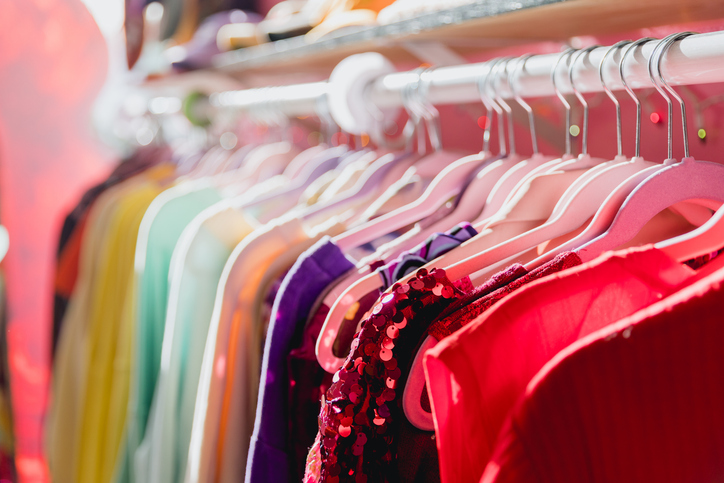Meet the Dark Knight—a Brooding, Souped-up Tesla Model S
The US$104,990 three-motor 2023 Tesla Model S Plaid Edition is among the fastest cars in the world, able to reach 60 miles per hour in just two seconds. It puts out 1,020 horsepower and 1,050 pound-feet of torque.
The Plaid is so quick it leaves its drivers gasping for breath, but can the car be improved? Unplugged Performance, a tuning shop in Hawthorne, Calif., that launched in 2013, thinks it can. So was born the Dark Knight, a tweaked Model S-APEX Plaid that has been extensively reworked to better hug the pavement. It sells for approximately US$230,000, including the donor car. But the many options could make it costlier.
The powertrain stays the same, but the car gets a 19-piece carbon fibre wide body kit that allows it to wear big 21-inch, lightweight forged wheels. Airflow is improved with “bargeboard” bodywork in front of the front wheels, a technique adapted from Formula One. Also directing air is the company’s Autobahn front carbon-fibre diffuser. The car meets the world with a sinister satin-black finish, featuring more exposed carbon fibre.
The car’s centre of gravity is lowered via a kit, and there’s a three-way adjustable rear sway bar and a rear-mounted GT strut tower brace. Also part of the suspension build are a series of billet-aluminium adjustable control arms that cut weight, increase strength, and allow some fine adjustments. For those choosing optimum track performance, there are full-race coilover suspension choices available. The Dark Knight needs to stop, so there are carbon ceramic brakes all around, cooled via a ducting system.
The interior was designed in collaboration with von Holzhausen, a company created by Vicki von Holzhausen (married to Tesla chief designer Franz von Holzhausen) that specialises in vegan leather products, including handbags. The tough-wearing interior fabric is in Serrano red and made from bamboo.

Unplugged Performance
Unplugged also makes over the other Teslas, including the S, 3, X, Y, and will also tweak the forthcoming Cybertruck. Brendan Sangerman, who directs marketing at Unplugged, says the Dark Knight is “the ultimate daily driver sports sedan.” Asked why the electric motors are left alone, he says, “You wouldn’t want it to be any faster than it is. Instead, we match the performance of the suspension and braking to the level of performance that the car already has.”
Sangerman emphasises that the Dark Knight is a bespoke product, and that the customer has a wide choice in the interior colors and fabrics. “We want customers to be very hands-on in the process,” he said. “If you tell us you like the interior shade in a specific Rolls-Royce, we can match it. Our parts catalog is pretty extensive.”
Unplugged is located close to the Tesla Design Center in Hawthorne. Its first Model S build was shown at the SEMA Show in Las Vegas in 2014, and the company exhibited at the Tokyo Auto Salon in 2016. Unplugged began putting its vehicles to the test on race tracks, and it set some EV records. It also won the exhibition class at the Pikes Peak International Hill Climb in 2021.
There will always be a market for performance tuners, and Unplugged has found a niche market in making some of the world’s most exciting EVs be just that little bit more intoxicating.
 Copyright 2020, Dow Jones & Company, Inc. All Rights Reserved Worldwide. LEARN MORE
Copyright 2020, Dow Jones & Company, Inc. All Rights Reserved Worldwide. LEARN MORE
This stylish family home combines a classic palette and finishes with a flexible floorplan
Just 55 minutes from Sydney, make this your creative getaway located in the majestic Hawkesbury region.
As Paris makes its final preparations for the Olympic games, its residents are busy with their own—packing their suitcases, confirming their reservations, and getting out of town.
Worried about the hordes of crowds and overall chaos the Olympics could bring, Parisians are fleeing the city in droves and inundating resort cities around the country. Hotels and holiday rentals in some of France’s most popular vacation destinations—from the French Riviera in the south to the beaches of Normandy in the north—say they are expecting massive crowds this year in advance of the Olympics. The games will run from July 26-Aug. 1.
“It’s already a major holiday season for us, and beyond that, we have the Olympics,” says Stéphane Personeni, general manager of the Lily of the Valley hotel in Saint Tropez. “People began booking early this year.”
Personeni’s hotel typically has no issues filling its rooms each summer—by May of each year, the luxury hotel typically finds itself completely booked out for the months of July and August. But this year, the 53-room hotel began filling up for summer reservations in February.
“We told our regular guests that everything—hotels, apartments, villas—are going to be hard to find this summer,” Personeni says. His neighbours around Saint Tropez say they’re similarly booked up.
As of March, the online marketplace Gens de Confiance (“Trusted People”), saw a 50% increase in reservations from Parisians seeking vacation rentals outside the capital during the Olympics.
Already, August is a popular vacation time for the French. With a minimum of five weeks of vacation mandated by law, many decide to take the entire month off, renting out villas in beachside destinations for longer periods.
But beyond the typical August travel, the Olympics are having a real impact, says Bertille Marchal, a spokesperson for Gens de Confiance.
“We’ve seen nearly three times more reservations for the dates of the Olympics than the following two weeks,” Marchal says. “The increase is definitely linked to the Olympic Games.”

Getty Images
According to the site, the most sought-out vacation destinations are Morbihan and Loire-Atlantique, a seaside region in the northwest; le Var, a coastal area within the southeast of France along the Côte d’Azur; and the island of Corsica in the Mediterranean.
Meanwhile, the Olympics haven’t necessarily been a boon to foreign tourism in the country. Many tourists who might have otherwise come to France are avoiding it this year in favour of other European capitals. In Paris, demand for stays at high-end hotels has collapsed, with bookings down 50% in July compared to last year, according to UMIH Prestige, which represents hotels charging at least €800 ($865) a night for rooms.
Earlier this year, high-end restaurants and concierges said the Olympics might even be an opportunity to score a hard-get-seat at the city’s fine dining.
In the Occitanie region in southwest France, the overall number of reservations this summer hasn’t changed much from last year, says Vincent Gare, president of the regional tourism committee there.
“But looking further at the numbers, we do see an increase in the clientele coming from the Paris region,” Gare told Le Figaro, noting that the increase in reservations has fallen directly on the dates of the Olympic games.
Michel Barré, a retiree living in Paris’s Le Marais neighbourhood, is one of those opting for the beach rather than the opening ceremony. In January, he booked a stay in Normandy for two weeks.
“Even though it’s a major European capital, Paris is still a small city—it’s a massive effort to host all of these events,” Barré says. “The Olympics are going to be a mess.”
More than anything, he just wants some calm after an event-filled summer in Paris, which just before the Olympics experienced the drama of a snap election called by Macron.
“It’s been a hectic summer here,” he says.

AFP via Getty Images
Parisians—Barré included—feel that the city, by over-catering to its tourists, is driving out many residents.
Parts of the Seine—usually one of the most popular summertime hangout spots —have been closed off for weeks as the city installs bleachers and Olympics signage. In certain neighbourhoods, residents will need to scan a QR code with police to access their own apartments. And from the Olympics to Sept. 8, Paris is nearly doubling the price of transit tickets from €2.15 to €4 per ride.
The city’s clear willingness to capitalise on its tourists has motivated some residents to do the same. In March, the number of active Airbnb listings in Paris reached an all-time high as hosts rushed to list their apartments. Listings grew 40% from the same time last year, according to the company.
With their regular clients taking off, Parisian restaurants and merchants are complaining that business is down.
“Are there any Parisians left in Paris?” Alaine Fontaine, president of the restaurant industry association, told the radio station Franceinfo on Sunday. “For the last three weeks, there haven’t been any here.”
Still, for all the talk of those leaving, there are plenty who have decided to stick around.
Jay Swanson, an American expat and YouTuber, can’t imagine leaving during the Olympics—he secured his tickets to see ping pong and volleyball last year. He’s also less concerned about the crowds and road closures than others, having just put together a series of videos explaining how to navigate Paris during the games.
“It’s been 100 years since the Games came to Paris; when else will we get a chance to host the world like this?” Swanson says. “So many Parisians are leaving and tourism is down, so not only will it be quiet but the only people left will be here for a party.”
This stylish family home combines a classic palette and finishes with a flexible floorplan
Just 55 minutes from Sydney, make this your creative getaway located in the majestic Hawkesbury region.






















